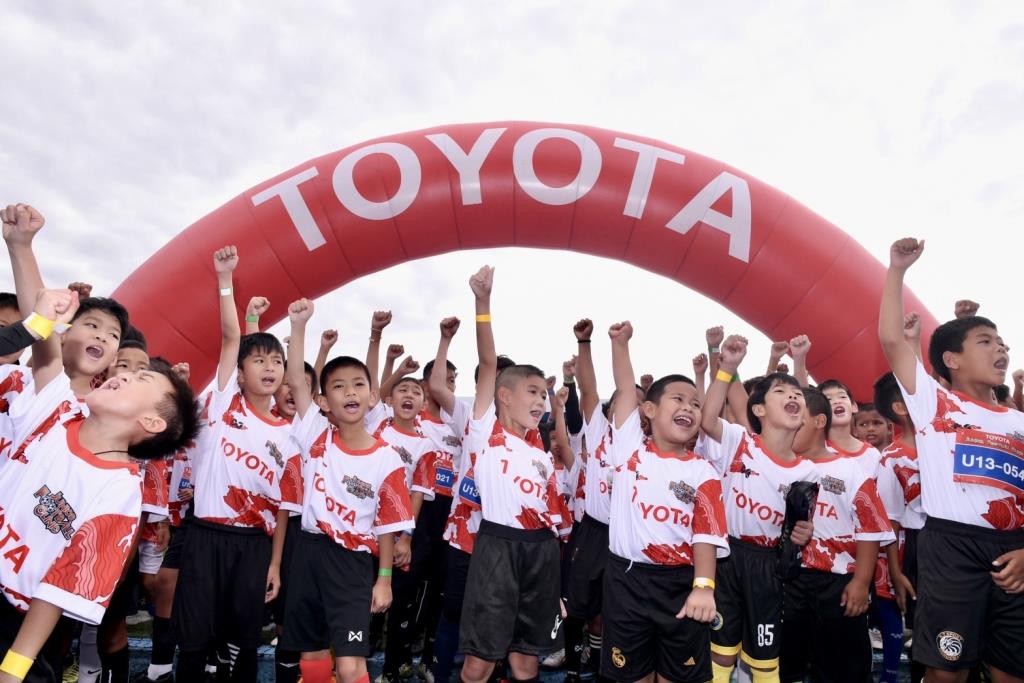“Youth Football Development in Turkey: A Nation’s Pursuit of Global Excellence
Related Articles Youth Football Development in Turkey: A Nation’s Pursuit of Global Excellence
Youth Football Development in Turkey: A Nation’s Pursuit of Global Excellence

Football, or futbol as it is known locally, holds a revered position in Turkish society. From bustling city squares to quiet rural villages, the passion for the sport permeates every corner of the nation. For decades, Turkish football has captivated fans with its fervent atmosphere, talented players, and dramatic narratives. However, beneath the surface of the professional game lies a crucial foundation: youth football development. Recognizing the importance of nurturing young talent, Turkey has embarked on a journey to transform its youth football system, aiming to produce world-class players and elevate the nation’s standing on the global stage.
A Historical Overview: Challenges and Opportunities
Historically, youth football development in Turkey faced numerous challenges. Limited resources, inadequate infrastructure, and a lack of standardized training methodologies hindered the progress of young players. Many clubs prioritized short-term success over long-term development, often neglecting their youth academies in favor of acquiring established players.
However, in recent years, a growing awareness of the importance of youth development has spurred significant changes. The Turkish Football Federation (TFF), along with clubs, academies, and private organizations, has invested heavily in improving youth football infrastructure, implementing standardized training programs, and providing opportunities for young players to showcase their talent.
Key Stakeholders and Their Roles
The development of youth football in Turkey involves a complex network of stakeholders, each playing a vital role in nurturing young talent:
-
Turkish Football Federation (TFF): As the governing body of football in Turkey, the TFF plays a central role in overseeing youth football development. It sets the standards for youth leagues, implements coaching education programs, and provides funding for youth academies. The TFF also organizes national youth teams, providing opportunities for young players to represent their country on the international stage.
-
Professional Clubs: The professional clubs in Turkey, particularly those in the Süper Lig, have a significant responsibility in developing young players. Many clubs have invested in state-of-the-art youth academies, providing young players with access to top-quality training facilities, experienced coaches, and competitive match opportunities.
-
Private Academies: In addition to club-affiliated academies, numerous private football academies operate throughout Turkey. These academies provide young players with additional training opportunities, often focusing on specific skill development or tactical understanding.

-
Schools: Schools play a crucial role in introducing young children to football and fostering a love for the sport. Many schools have football teams and organize tournaments, providing young players with their first taste of competitive football.
-
Coaches: Coaches are the backbone of youth football development. They are responsible for imparting technical skills, tactical knowledge, and character development to young players. The TFF has invested heavily in coaching education programs, aiming to raise the standards of coaching across the country.
Key Initiatives and Programs
Several key initiatives and programs have been implemented to improve youth football development in Turkey:
-
Youth Leagues: The TFF organizes a comprehensive system of youth leagues, catering to different age groups and skill levels. These leagues provide young players with regular competitive match opportunities, allowing them to develop their skills and gain valuable experience.
-
National Youth Teams: Turkey has national youth teams at various age levels, ranging from under-15 to under-21. These teams provide young players with the opportunity to represent their country on the international stage, competing against some of the best young players in the world.
-
Coaching Education Programs: The TFF runs a comprehensive coaching education program, offering courses and certifications for coaches at all levels. These programs aim to equip coaches with the knowledge and skills necessary to effectively develop young players.
-
Infrastructure Development: Significant investments have been made in improving football infrastructure across Turkey, including the construction of new training facilities, pitches, and stadiums. This improved infrastructure provides young players with access to better training environments and match venues.
-
Talent Identification Programs: The TFF and clubs have implemented talent identification programs to scout and recruit promising young players from across the country. These programs aim to identify and nurture the most talented young players, providing them with the opportunities to reach their full potential.
Success Stories and Emerging Talents
The efforts to improve youth football development in Turkey have yielded some notable success stories. In recent years, several young Turkish players have emerged as stars in the Süper Lig and have also attracted attention from top European clubs. Some notable examples include:
-
Arda Güler: A highly talented attacking midfielder who rose through the ranks of Fenerbahçe’s youth academy before securing a move to Real Madrid.
-
Kenan Yıldız: A promising young forward who developed in the Bayern Munich youth setup and now plays for Juventus.
-
Semih Kılıçsoy: A young striker who has broken into the Beşiktaş first team and scored several important goals.
These success stories demonstrate the potential of Turkish youth football and provide inspiration for aspiring young players across the country.
Challenges and Future Directions
Despite the progress made, youth football development in Turkey still faces several challenges:
-
Inequality of Opportunity: Access to quality training and coaching remains unevenly distributed across the country, with young players in urban areas often having greater opportunities than those in rural areas.
-
Financial Constraints: Many clubs and academies struggle to secure adequate funding for youth development programs, limiting their ability to invest in infrastructure, coaching, and talent identification.
-
Emphasis on Short-Term Success: Some clubs still prioritize short-term success over long-term development, hindering the progress of young players.
-
Lack of International Exposure: While national youth teams provide some international exposure, more opportunities are needed for young Turkish players to compete against their peers from other countries.
To address these challenges and further improve youth football development, Turkey needs to focus on the following areas:
-
Promoting Equal Opportunities: Efforts should be made to ensure that all young players, regardless of their background or location, have access to quality training and coaching.
-
Increasing Investment: More funding should be allocated to youth development programs, both from the government and private sector.
-
Fostering a Long-Term Vision: Clubs should prioritize long-term development over short-term success, investing in their youth academies and providing young players with opportunities to progress.
-
Enhancing International Exposure: More opportunities should be created for young Turkish players to compete against their peers from other countries, through participation in international tournaments and exchange programs.
-
Improving Coach Education: Continued investment in coach education programs is essential to ensure that coaches have the knowledge and skills necessary to effectively develop young players.
Conclusion
Youth football development is crucial for the future of Turkish football. While challenges remain, the progress made in recent years is encouraging. By continuing to invest in infrastructure, coaching, and talent identification, Turkey can unlock the full potential of its young players and elevate the nation’s standing on the global stage. The passion for football runs deep in Turkish society, and with a renewed focus on youth development, Turkey can realize its ambition of becoming a major force in world football. The journey requires patience, dedication, and a commitment to long-term planning, but the rewards – a generation of world-class players and a nation united by footballing success – are well worth the effort. The future of Turkish football hinges on the success of its youth development programs, and the nation is determined to nurture its young talent and achieve global excellence.

